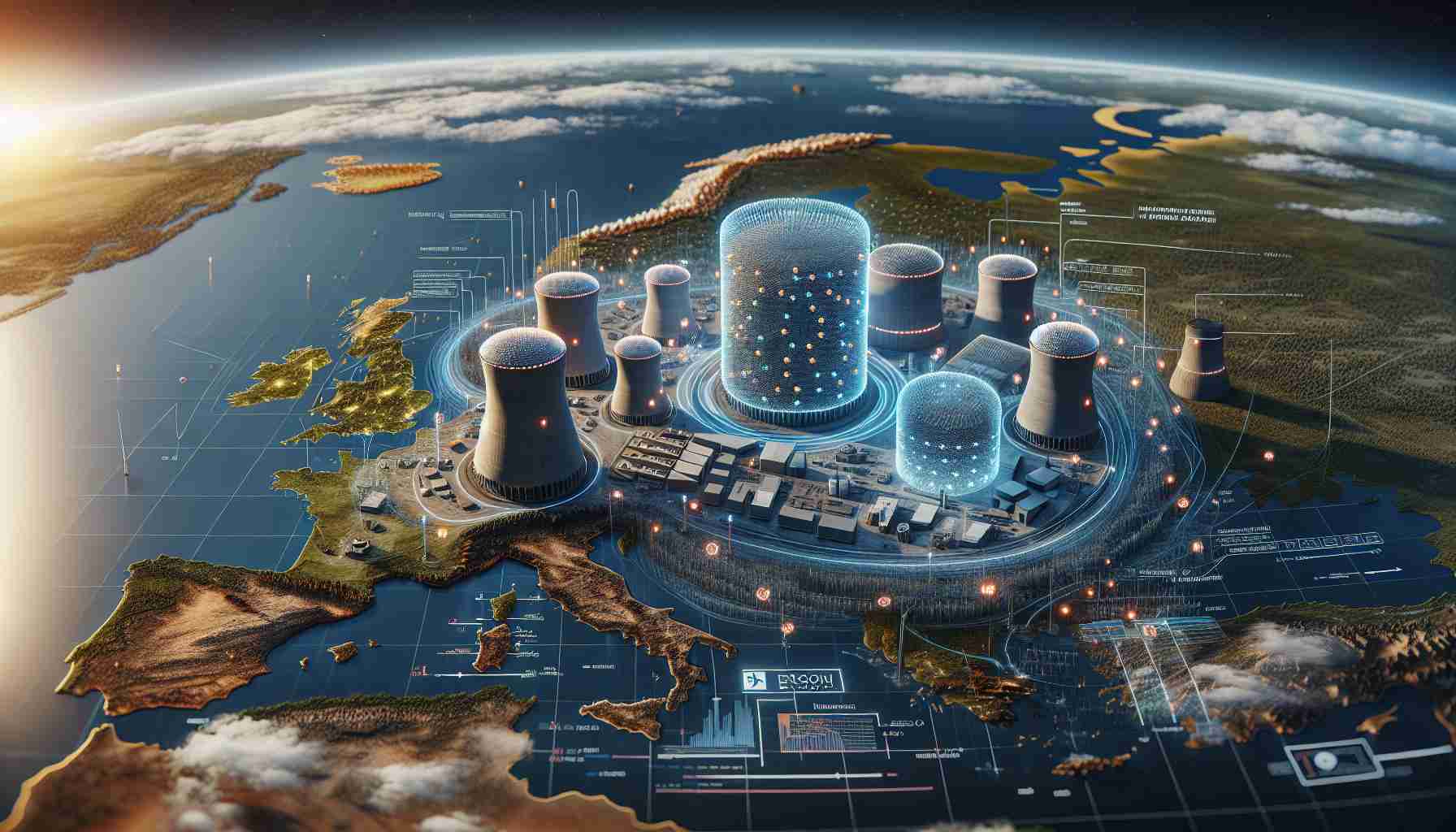Nuclear Power Plant Eyes Recommissioning Amidst Record Energy Demand
NextEra Energy is exploring the possibility of restarting its Duane Arnold nuclear power facility located near Palo, Iowa. Recent engineering studies and discussions with federal authorities have positioned the company to potentially bring the plant back online, responding to the surge in electricity needs driven by advancements in technologies such as artificial intelligence and the shift toward electrification.
With a history as Iowa’s sole nuclear power station, the Duane Arnold plant was closed in 2020. However, CEO John Ketchum has expressed significant interest in recommissioning, noting that the plant’s boiling water reactor design may facilitate a cost-effective and lower-risk restart. This optimism comes at a time when the nuclear sector is shaking off decades of economic struggles and safety challenges, with a notable upswing in electricity requirements.
As government regulations pave the way, two other decommissioned U.S. nuclear facilities are also eyeing relaunches, hinting at a broader nuclear revival. Analysts suggest that the Duane Arnold location stands a good chance for resurrection, given its recent closure.
Despite this renewed focus on nuclear energy, NextEra maintains its commitment to expanding its renewable energy initiatives. The firm has already established substantial agreements for developing renewable energy and storage projects, reinforcing its position as a leader in the industry. As it navigates these changes, NextEra continues to prioritize sustainable energy solutions while potentially rekindling its nuclear heritage.
The Nuclear Renaissance: Impacts on Communities and Our Future
A New Chapter for Nuclear Energy
In the wake of advancing technologies and an escalating demand for energy, the recommissioning of the Duane Arnold nuclear power facility in Iowa signifies more than just a potential economic boost; it heralds a transformative period for energy practices in the U.S. and globally. This nuclear renaissance presents unique challenges and opportunities that could significantly impact the lives of individuals, communities, and entire nations.
Economic Impacts and Job Creation
The reopening of nuclear plants like Duane Arnold could lead to substantial job creation within communities. The nuclear sector is known for generating numerous high-skilled positions, from engineers to technicians. Furthermore, local economies stand to benefit greatly from the infusion of jobs, as resident workers spend their wages in nearby businesses. A robust nuclear plant can act as a catalyst for regional growth, potentially revitalizing areas that may have suffered economically during the facility’s absence.
Controversies Surrounding Nuclear Energy
Despite the potential advantages, the recommissioning of nuclear facilities is not without controversy. Public perception remains one of the significant hurdles. Many communities harbor residual fears about nuclear safety, especially following high-profile disasters like Fukushima and Chernobyl. Questions surrounding waste management, long-term environmental impacts, and the risks associated with nuclear proliferation continue to provoke debates among communities and policymakers alike.
Safety Regulations and Modern Innovations
Interestingly, advancements in nuclear technology have made modern reactors significantly safer. Innovations such as passive safety systems, which rely on natural laws of physics to operate safely without human intervention, enhance public confidence. Additionally, new regulations are evolving, driven by historical lessons learned and the need to ensure both worker and environmental safety.
Are We Ready for a Nuclear Future?
A pressing question remains: Are we ready to embrace nuclear energy again as a vital component of our power supply? The answer lies in balancing the risks with the undeniable advantages. As renewable energy sources struggle to meet increasing demands, nuclear energy presents a reliable option that can provide stable power. In a world striving to minimize carbon emissions, the role of nuclear power as a clean energy source cannot be overlooked.
Global Context and Future Prospects
Globally, countries like France, China, and the U.K. continue to invest heavily in nuclear energy, demonstrating its viability in contemporary energy strategies. As other nations observe the U.S.’s moves, a potential global shift back to nuclear energy may occur, solidifying its place in future energy frameworks. The rush toward recommissioning in the U.S. may spark interest in underutilized nuclear facilities worldwide, indicating a substantial shift in energy dynamics.
Community Engagement and Public Education
To navigate the complexities associated with nuclear recommissioning, community engagement will be crucial. Public forums and educational campaigns can help demystify the nuclear process and address concerns. Transparency about safety measures and environmental impacts will foster public trust, essential for the success of such endeavors.
In conclusion, the potential revival of nuclear power epitomizes a pivotal moment for energy policy and community resilience. As stakeholders engage in this dialogue, the pathway forward will shape the energy landscape for generations.
For more on the energy of the future, visit nrc.gov.
The source of the article is from the blog motopaddock.nl


